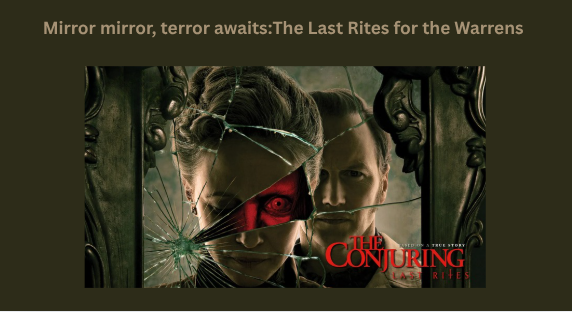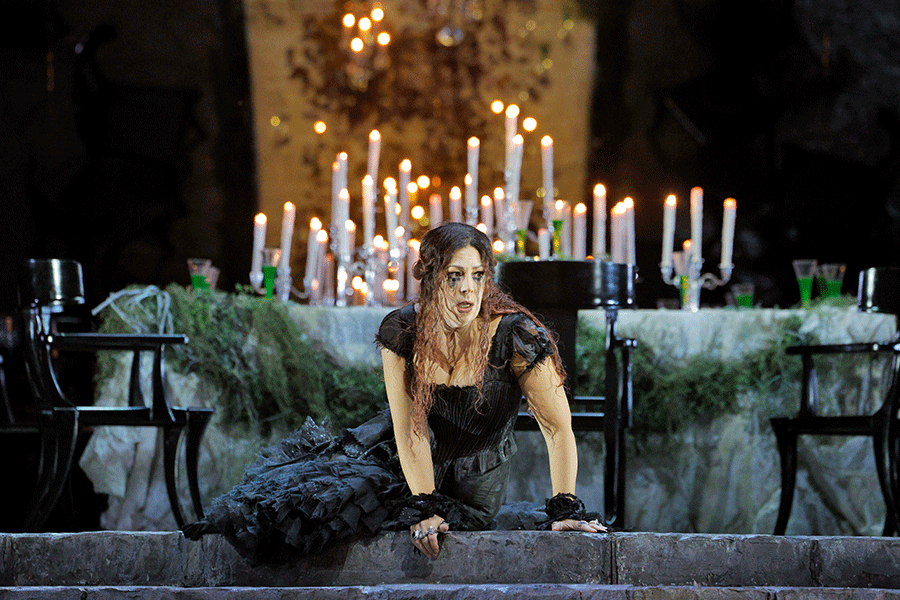Warning: The following story contains spoilers about the movie Dune: Part Two.
On Mar. 1, Dune: Part Two entered American movie theaters. With not much advertisement and coming out a few years after the first film, viewers were unsure of what to expect. Many, myself included, had largely forgotten the plot of the first installment. In other words, the bar was set low. I am something of a stringent critic when it comes to movies; there are plenty of very popular movies that honestly I found to be mediocre. But let me tell you: boy, did the movie deliver something not seen before in cinema history.
But, before I give my opinions, a brief summary: Dune: Part Two is the sequel to the saga’s first film which was released in the US on October 22, 2021. It is essentially the prequel to what happens in the second film, generally serving to describe the imaginary universe of Dune, set roughly 8,000 years into the future. It chronicles the story of the planet Caladan—its domestic conflicts, power struggles, and most importantly, the downfall of House Atreides family’s empire that controlled its vital asset: the spice planet Arrakis.
Upon its release, viewers’ reactions were mixed. Many saw the first film as slow or uninteresting. Some critics liked it, but they were overshadowed by the numerous ones that shared the reaction of fans. Dune: Part Two, however, completely flipped the legacy of the earlier counterpart on its head.
The movie follows Paul Ateides, the son of the late Duke Leto Atreides, who, along with his mother, have escaped to Arrakis in search of shelter. They are slowly accepted into the clan of the Fremen, the planet’s nomadic people. Paul’s mother Lady Jessica becomes the Fremen’s divine “Reverend Mother,” while Paul battles with emotional problems, debating whether or not to try to fight back against the overtakers of Arrakis, House Harkonnen, seeking to prevent a potential Holy War.
Eventually, upon gaining the memories of generations before him along with insight into the future through the Water of Life, Paul decides that the Holy War is inevitable. With the help of his mother, he convinces the Fremen people to devote themselves to him through religious reasoning and leads a crusade against House Harkonnen and the Emperor of the universe himself. The ending of the picture sees Paul assume emperorship, igniting the Holy War with the other Great Houses.
The film is honestly extraordinary, exemplifying something that, in my opinion, hasn’t been seen in sci-fi movies in a very long time. To start off, it is drawn absolutely beautifully. Its CGI is arguably one of the greatest ever, creating a world so realistic that it can be ranked among the top CGI features ever, from Avatar to Lord of the Rings. In fact, sitting in the movie theater, I found myself frankly not even thinking about the movie’s verisimilitude, as that is how convincing it truly is.
The acting, similarly, is superb. Timothée Chalamet steps up his game from the first installment greatly, cordially conveying Paul’s attitude and maturing character throughout the story. His role is the most crucial to the storyline, and after it is performed well, it would seem that that would be enough. However, the rest of the ingeniously picked cast is just as good as the lead, without any exaggeration.
The main standouts, clearly, are Zendaya’s Chani, Rebecca Ferguson’s Lady Jessica, Austin Butler’s Feyd-Rautha, all of whom are conveyed in such an engrossing way that you forget any other role they have in the past and are compelled to accept their present roles without question. Alongside them, and equally as captivating, something that is not seen almost ever in cinema, are the brilliant Christopher Walken, Florence Pugh, Josh Brolin, Stellan Skarsgård, Javier Bardem, Léa Seydoux, and Dave Bautista.
Wow, is this a cast to be remembered. Wow. However, as difficult as it may be to believe, neither the remarkable CGI nor the fantastic acting are the best part of the movie, the award of which singularly belongs to the movie’s story, which is as exhilarating and alluring as it is thought-provoking. The film does everything; it conveys the tranquility of the Fremen world, the rise of Paul Atreides through the ranks of power, the reason for the sandworms and the Bene Gesserit, the hierarchy of the Dune universe, Paul and Chani’s love, Paul’s confusion about the world, and more.
The overarching themes in the picture are just as intriguing. The film stunningly exhibits the power of faith in an idea, person, or religion; it expresses the conflict between saving the world and staying true to one’s morals; it depicts the control of the right-hand man on the actions of the leader; it puts in question the desire to know the past or future; it delineates the grip that the thirst revenge can have over one’s life.
This is, of course, not to say that the movie is wholly perfect—are there a few puny issues with the plot or messaging? Arguably so. However, I say to such criticism that no work of art is ever flawless. If your validity of the film is determined by your ability to undermine it as best you can, then so be it. But, I believe any reasonable person, let alone any sci-fi admirer will agree with me in my overall assessment, which is that:
Dune: Part Two set out to be a sci-fi movie, a visual representation of Frank Herbert’s book Dune. Not only did it achieve that to its fullest extent, but it did so in an utterly stunning fashion, through its exceptional CGI, acting, and storyline. On top of that, it portrayed important concepts and themes, provoking spectators to think about their own lives and what they mean to them. And at the end of the day, if all of that is not enough for a film to be considered great, then I really don’t know what is. Dune: Part Two will go down in history among the finest sci-fi movies of all time. And that’s that.














